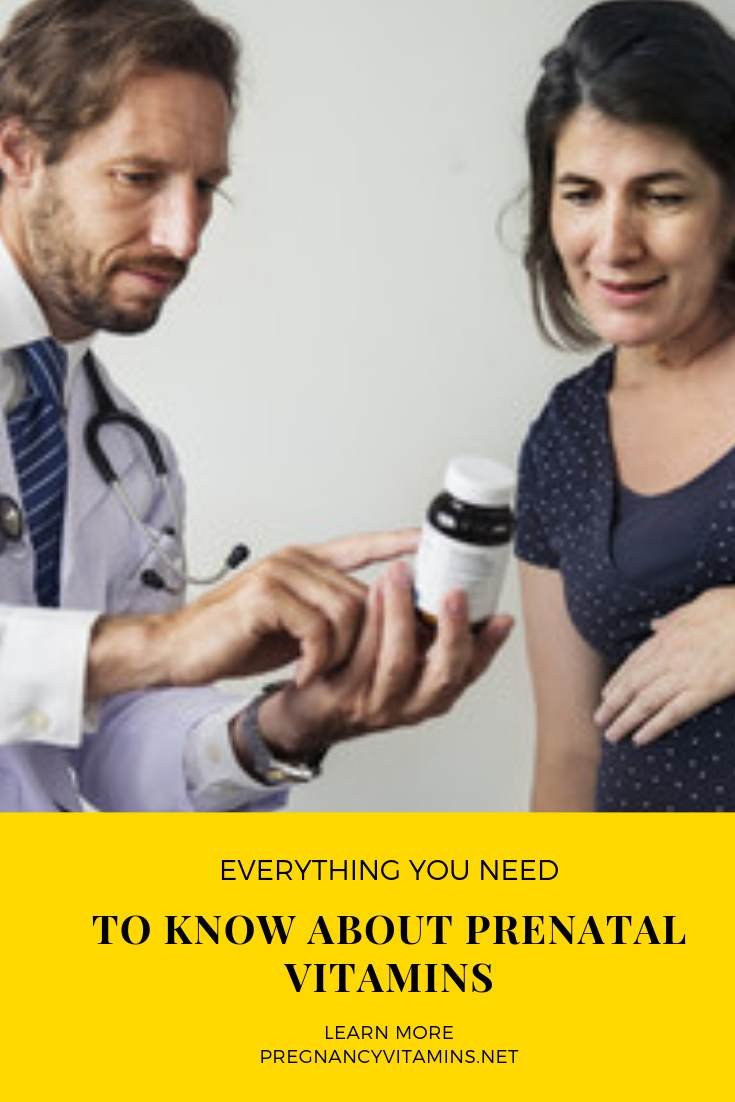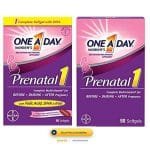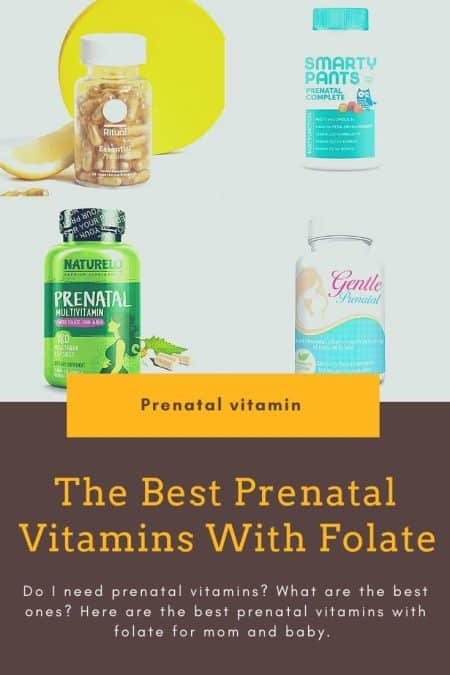Prenatal vitamins are supplements made specifically for women that are pregnant or trying to get pregnant. They are different from other multivitamins because they contain important vitamins like folic acid for a healthy pregnancy.
Although prenatal vitamins can not replace healthy food, eating a well-balanced diet during pregnancy is the best way of preventing birth defects, but it’s also necessary for you to take prenatal vitamins. Your nurse, doctor, or midwife can recommend the best vitamins for you, on top of folic acid.
When do I need to start taking prenatal vitamins?
Start taking your vitamins (folic acid) at least one month before you start trying to get pregnant. The first few weeks of pregnancy are very crucial for baby development and fetal health. Keep taking prenatal vitamins throughout the duration of pregnancy.
Prenatal vitamins contain many vitamins and minerals needed for a healthy baby. Their folic acid, iron, iodine, and calcium are essential components.
Folic Acid
Folic acid is the key vitamin you need for your baby to grow and develop. The B vitamin helps your cells and your baby if you take 400mcg every day for at least one month before and during your pregnancy duration. It lowers the risk of baby brain and spine problems – known as neural tube defects (NTDs).source
Neural tube defects develop in the first 28 days after conception before many women know they are pregnant.
A woman who has already had a baby with a neural tube defect should speak with her doctor whether she can use the B vitamins and the right dosage of folic acid supplements. Studies have shown that taking a larger dose (up to 4,000 micrograms) at least one month before and during the first trimester is very good for women but first, speak with your nurse first.
Also, those that have sickle cell disease will need to take more of folic acid. Speak with your nurse for an appropriate dosage for your specific needs.
Foods containing folic acid include;
- green leafy vegetables,
- nuts,
- beans,
- citrus fruits, and many foods that have been fortified with folic acid.
What to Look for in Prenatal Vitamins
Look for a prenatal vitamin that includes:
- 400micrograms (mcg) of folic acid.
- 400 IU of vitamin D.
- 200 to 300 milligrams (mg) of calcium.
- 70 mg of vitamin C.
- 3 mg of thiamine.
- 2 mg of riboflavin.
- 20 mg of niacin.
- 6 mcg of vitamin B12.
- 10 mg of vitamin E.
- 15 mg of zinc.
- 17 mg of iron.
- 150 micrograms of iodine
In some cases, your doctor may prescribe a certain type of prenatal vitamin as need be!
Iron
Prenatal vitamins with iron are also very important for you and your baby 👶. You will need twice as much of this essential mineral to pump more blood. Pregnant women should get 27 milligrams of iron each day.
Calcium
This mineral is good for your baby to grow properly. It improves your baby’s bones, teeth, muscles, and nerves. Pregnant women should get 1,000 milligrams daily. Getting enough calcium should be a priority: Not getting enough calcium now can lead to osteoporosis later in life. Your baby will suck out of your own bone if you are not getting enough.
Omega-3s
Omega-3s are another crucial vitamin that you need during pregnancy to boost baby fatal development. Omega-3s foods include Walnuts, Salmon, Canola Oil, Sardines, Chia Seeds, Mackerel, Flaxseeds. e.t.c.
Omega-3s as been proven to:
- Increase the nutrients for your baby to develop
- Support your baby’s heart and respiratory system
- It develops your baby’s brain eyes (development of visual center).
- it helps prevent pre-term labor and premature delivery. Improve your child’s learning and cognitive function to age four.
- Increase the attention span of a child (it improve intelligence early in the life of a child).
- Omega-3s support you during pregnancy and reduce your chances of toxemia (or pre-eclampsia).
You can choose to use omega 3s supplements if you are not getting enough of these essential nutrients.
Vitamin D
This vitamin helps your body to absorb more calcium and is crucial for your baby’s bones, teeth, eyes, and skin. American pregnancy association recommends getting 600 IU (international units) of vitamin D a day during pregnancy, and many doctors also prescribe even more—800 or 1,000 IU—because many pregnant women are deficient.
Iodine
You need 220 micrograms of iodine every day during pregnancy to support your baby’s brain and nervous system, according to baby center. Your prenatal pill has at least 150 micrograms (foods like fish and dairy can add on top)
How Many Supplements Do I Actually Need?
A prenatal vitamin will often contain 100 percent of the recommended daily allowance (RDA) for folic acid, and 100 percent or more of the RDA for iron, but it may have only around 250 mg of calcium, so if you are not getting enough in your food (if you’re vegan, for instance, or lactose intolerant) you should take a supplement in addition to your diet. You should not take it at the same time because a large dose of calcium can’t be absorbed along with the iron in your prenatal vitamin, says Dr. Levitt. The best way to do this is to take your iron supplement in the morning and your calcium supplement at night. source
Do prenatal vitamins have side effects?
Some pregnant women get nauseated or constipated from taking their vitamins. If you get prenatal vitamin side effects, speak with your doctor if you want to change or choose the right vitamins.
Prenatal vitamins come in tablets or capsules, so choosing the right one that works with your body we reduce the side effect.
Your doctor or midwife can help you find the best prenatal vitamin for your specific needs.
Our advice
To help increase your chances of having a healthy baby, you must follow all this nutritional plan for your baby to grow and eat good food and exercise daily before you get pregnant. If you choose to supplement your diet with prenatal vitamins, be sure to use the right dosage and speak to your, doctor, nurse, and midwives about it or before using your vitamin supplement.

Question – Did this article benefit you? Leave a comment below.
Do you know anyone who can benefit from this information? Send them this page or click on the share buttons on the left.
You’ll be helping us out by spreading the word about our website, and you’ll be helping them out!










